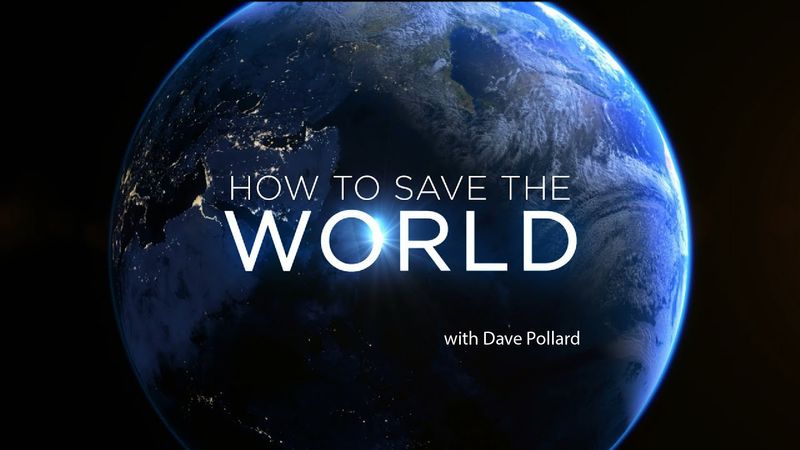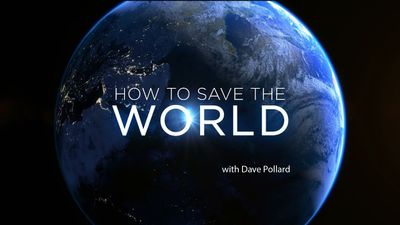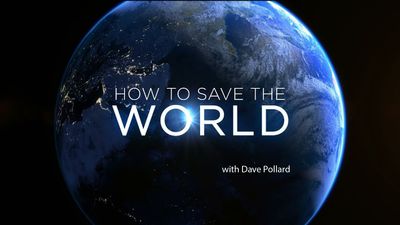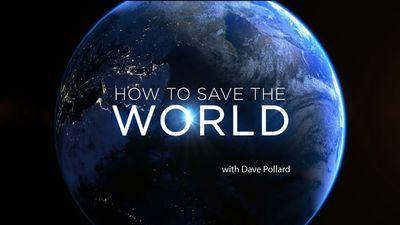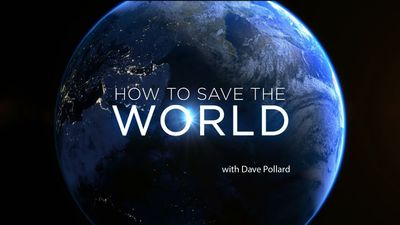It's About Time
This is another article about radical non-duality. It’s written mostly because I can’t help thinking about it, and hence trying to ‘figure it out’, writing being my primary means of thinking things through. And it’s posted for the very few who might find this subject intriguing, or even resonant in some way. If that’s not you, please don’t waste your time reading it. Instead, read this remarkable article by a former British Ambassador with a deep, long-standing, personal familiarity with world affairs, and particularly eastern Europe.
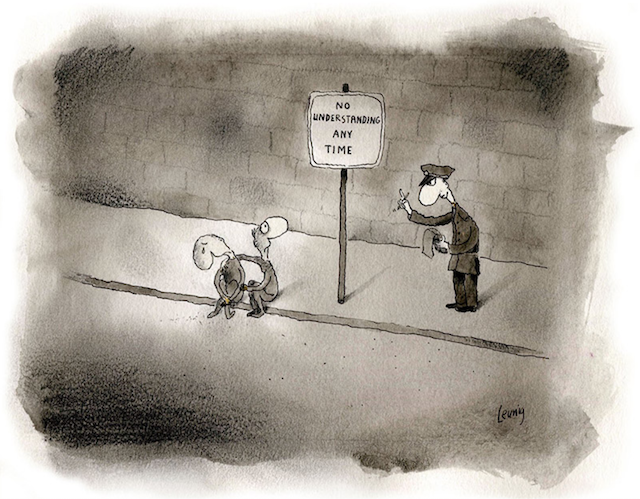
The sticking point for most people who explore radical non-duality is the assertion that there is no such thing as time — that it’s a complete illusion, a mental construct, a psychosomatic misunderstanding of what actually is.
It’s a reach to try to conceive that there is no one — there are no selves — or that everything that seems to be real is just an appearance. That everything is just appearing, for no reason. But even if you can buy that as an interesting possibility, the idea that there is no time — no past, no future, and (sorry Eckhart) no present, no Now — seems a stretch too far.
There are physicists and quantum scientists who have posited that time is just a mental construct, and who assert that getting rid of the idea, the variable, of time, makes explaining much of what seems to be happening in the world very much simpler. Time, they say, is something our brains concocted to avoid the distressing conclusion that everything is happening at once, or not at all. But for the most part even scientists find it necessary to invent a surrogate. Some “no-such-thing-as-time” advocates, for example, say that change or ‘relationship’ is the real variable, and time is just an arbitrary way of labelling change or relationship. Others say that “consciousness” is the universal, and that time is just a placeholder for how consciousness ‘moves’ and manifests itself.
Still, it is vexing to science to realize that e=mc2 becomes nonsense when c, the speed of light, is zero because without time there can be no speed, no movement, since movement seemingly occurs ‘over’ time. There can be no big bang that happened at some point in time. There can be no movement of atoms or their constituents. There cannot even be entropy.
But radical non-duality is saying something that is, well, even more radical than that: Not only is there no time; there is no change, no movement, and no consciousness, either individual or universal. There is no thing separate from anything else, nothing that ‘really’ exists. There is only what is apparently happening. Outside of time. Outside of ‘you’.
This of course boggles the mind, and offends our sensibilities. The sense of things changing over time, in a linear continuity, seems unassailable. Even if everything is, in fact, “happening at once”, in what one physicist calls a universe that is perhaps nothing more than “an infinite field of possibilities”, then it’s just unimaginable that the brain is able to parse all of these apparently happening things into a sensible order, one that makes sense of their randomness, if there were not some “reality” to that sequence.
But our brain apparently makes sense of dreams, of cloud formations, and of other perceptions that have no “real” basis in reality. Why is it not possible that what we think of as “real”, including the existence of time, is just the apparent brain’s feverish patterning and model-making of its received sensory perceptions — just “make-believe” because that’s the best the brain can do. And just as we get fooled by the appearance of the sun going around the earth, or the appearance of pixels on a screen portraying characters doing things in time, why is it not possible that this “make-believe” reality conjured up by the apparent brain is equally foolish, incorrect, just a valiant but bad guess about what actually is?
Why should there have to be anything actually real, including “real” time? Why shouldn’t “that’s just what appears to be happening” be as valid an explanation of our seeming reality, as the hole-filled and constantly-revised theories of scientists, and the easily-fooled “evidence” of our senses? Why does there have to be a reason for things to be as they apparently are?
This is not to advocate that we should give up trying to make sense of the world. As a radical Piersonian behaviouralist, I don’t believe we have any choice in what we apparently do, think or believe, so far be it from me to advocate anything to anyone. I just find the message of radical non-duality to be so appealing, so elegant in its simplicity, so internally consistent, so irrefutable, and so resonant with moments in my seeming past when “I” was suddenly not there, that I am entranced by it.
The fact that there are people spreading this message not as a theory but as a statement of what is obvious to “them” and has been obvious “since their illusory selves apparently fell away” makes it even more compelling to me, especially when “they” are willing to spend thousands of hours freely chatting about this to anyone who has questions about it, and do so with little or no interaction with other radical non-duality “messengers”, and they mostly articulate it convincingly despite having no apparent predisposition for eloquence or predilection for sophistry or guile.
I, of course, cannot say it is “obvious” to me. My self is “still” very much in evidence “here”. There have been glimpses “here” when that was not the case, and they undoubtedly have increased my susceptibility to the radical non-duality message. It’s likely the combination of those glimpses, plus the elegance of the message, plus the patient, sensible and selfless articulation of the message by its messengers to thousands of curious but incredulous listeners, that has won me over.
But back to the questions about time. I wrote before about the phenomena of apparent causality and apparent memories. There is no need for causality to “explain why” what’s apparently happening is apparently happening. There doesn’t have to be a reason, any more than there has to be a reason that a cloud formation looks like a child’s face. And there can be a recalling of seemingly “past” happenings without there needing to be a memory of something that “really” happened. Just as there can be a recalling of events in a dream, events that didn’t really happen but certainly appeared to happen.
So what about evolution? There seems an unarguable logic to the fact that adaptations of species occurred over time in response to changing environments. Billions of people have bought into that logic.
But people also read and enjoy books whose characters develop and evolve over time, and talk about those characters and their evolution as if they were real. There is no reason why apparent evolution isn’t just another compelling story that makes a lot of sense to us, but is nonetheless just another story, like the stories we hear about who the good guys and bad guys were in a war or movie, and the story of “progress” through history.
Radical non-duality says that all stories, including the story of evolution, are just the self’s misunderstanding our brains’ patterning as describing something real, when it is not. There is only what is apparently happening, for no reason or purpose and with no meaning, other than that assigned to it by the self, which seems compelled to attach meaning and substance and relationship to everything. The fact that billions of people believe gods are real, and that they did things and continue to do things, doesn’t mean that they are real, and doesn’t make the stories about them true.
Is there anyone who doesn’t perceive time as linear and real? Yes — those conveying the message of radical non-duality all assert that there is no such thing as time, that everything is perpetually new, and that it is impossible to explain it to those who perceive and conceive time to be real. Why impossible? Because our languages are entirely constructed around the illusions that individual things and separate people are absolutely real (nouns and pronouns), that things are actually rather than apparently happening (verbs), and that they are happening in time (tenses).
So then why aren’t the messengers of radical non-duality rendered moot, unable to use self-made languages at all? Because when this colossal misunderstanding is seen through, there is an understandable desire to talk about it (or perhaps not talk about it, for fear of being thought mad). And speaking without using nouns, pronouns and verbs is absurd — words are just tools, after all, and don’t need to represent anything real or precise to be useful, especially when they’re the only tools we have.
And to be clear, these messengers seem perfectly functional in all respects, indistinguishable from those of us seemingly afflicted with selves and the belief that time is real. The realization that there is no real time has not changed how they appear to behave to their families and friends. “After enlightenment, chop wood, carry water,” and all that.
When a radical non-duality messenger says “I drank tea with my sister this morning”, they are speaking figuratively. It’s a way of saying something like “There is remembering of sibling tea-drinking apparently happening”, which would come across as obscure and annoying if they were to say it that way. But there is no tea, no I, no sister, and no morning. There is just the appearance of things happening. Not in the past, because there is no past. Not all-together-in-a-jumble now, because there is no now. “I drank tea with my sister this morning” is just a story. It may have seemed absolutely real to the messenger’s sister, who might nod when hearing that sentence. But while the sentence is totally coherent to both the messenger and the messenger’s sister, the meaning of what is being said is utterly different.
Everything that we think of as happening in or over time — even life and death — are likewise just apparent happenings, not real. There is no time within or over which any event can really happen. It's apparent rather than real occurrence does not in any way diminish the intensity of accompanying feelings or thoughts, however. Astonishingly (and perhaps incredibly to most selves) there can be overwhelming, unbearable, inconsolable, agonizing feelings happening, even ‘when’ there is no real self to feel them. Indeed, the message is that there are already no selves, and the realization of that truth changes nothing except the internal story that the self tells about the apparent events.
This is perhaps the hardest part of the radical non-duality message to explain. This message is not an attempt to (and offers nothing to) inure, desensitize, dissociate or numb oneself or others from the seeming harsh ‘realities’ of the world. It is not in any way nihilistic. It is not a denial of reality, but rather an illumination of the true nature of reality, which cannot be seen through the confusing and misunderstanding veil of the self. The message offers no path, no comfort, and no compromise. It offers nothing to the self at all.
In short, how we make sense of things is not how it actually is. We — more precisely our ‘selves’ — believe that we are real, that separate things are real, that things are really happening, and that they are really happening in time. It is perhaps understandable that we are mistaken. Time, Einstein said, is a “stubbornly persistent illusion”, and so are ourselves and our perceptions of separateness and reality.
‘We’, and our persistent illusions, are a kind of cosmic recursive programming error based on the false premise that things can and must be known and made sense of. There is no making sense of this, and no need to make sense of it. This is already everything, apparently happening, for no reason. There has never been ‘us’, separate things that know things, and never will be. Nor time to know them.
It’s as simple as that. There is no ‘time’ to lose.

Finding the Sweet Spot: the natural entrepreneur's guide to responsible, sustainable, joyful work
"Now what am I going to do?" is a question many people ask—and leave unanswered—at critical potential turning points in their careers. Perhaps you’re a new graduate, but instead of lining up for a boring entry-level job at a big corporation, you wish you could start your own sustainable and responsible business

